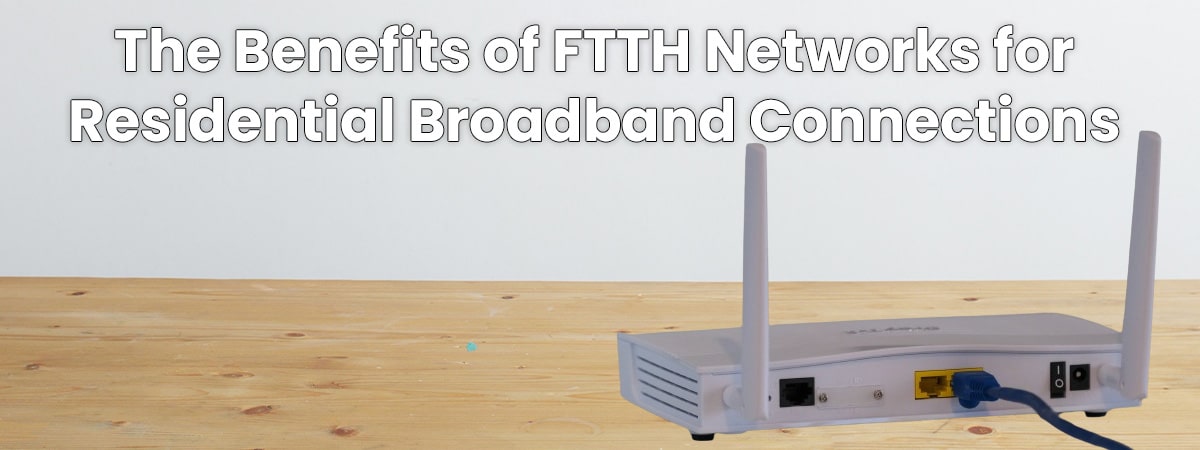Fiber-to-the-home (FTTH) networks are becoming increasingly popular for residential broadband connections. FTTH networks allow for much faster speeds and more reliable connections than traditional copper-based telecommunications networks. These networks use fiber optic cables to deliver data directly to a home, rather than relying on copper-based telephone lines. As such, FTTH networks can provide significantly higher bandwidth and capacity than traditional networks.
In this article, we will discuss the benefits of FTTH networks and how they can provide superior network capacity and bandwidth. We will also explain how FTTH networks can be used to improve the quality of internet service in residential areas.
The main benefit of FTTH networks is that they provide significantly higher bandwidth and capacity than traditional networks. This is due to the increased bandwidth of fiber optic cables. Fiber optic cables are capable of transmitting data much faster than traditional copper cables, which allows for higher speeds and more reliable connections. Additionally, fiber optic cables are more resistant to interference from other electronic devices, which further improves the quality of the connection.
The increased bandwidth and capacity of FTTH networks also allow for more efficient internet service. With the increased bandwidth, users are able to access the internet more quickly, which leads to an improved user experience. Additionally, with the increased capacity, the network can handle more users at once without experiencing any slowdown or latency issues. This means that more people can use the internet at the same time without affecting the quality of service.
In addition to providing higher bandwidth and capacity, FTTH networks also provide more reliable service. Traditional networks are susceptible to issues such as signal degradation, which can lead to slow speeds and unreliable connections. However, fiber optic cables are immune to these issues, meaning that FTTH networks provide a much more reliable connection.
Finally, FTTH networks are also much more secure than traditional networks. Fiber optic cables are much more difficult to tap into than copper cables, which makes them much more secure. This means that users can enjoy a more secure connection, which is especially important for activities such as online banking or shopping.
As you can see, FTTH networks provide a number of benefits over traditional networks. They offer higher bandwidth and capacity, improved efficiency, and increased security. All of these benefits make FTTH networks a great choice for residential broadband connections.
If you are looking for a reliable and secure connection for your home, then a FTTH network may be the right choice for you. With the increased bandwidth and capacity, you can enjoy faster speeds and more reliable connections. Additionally, the added security of fiber optic cables means that you can be confident that your data is safe and secure. So, if you are in the market for a new broadband connection, then a FTTH network may be the perfect choice for you.
